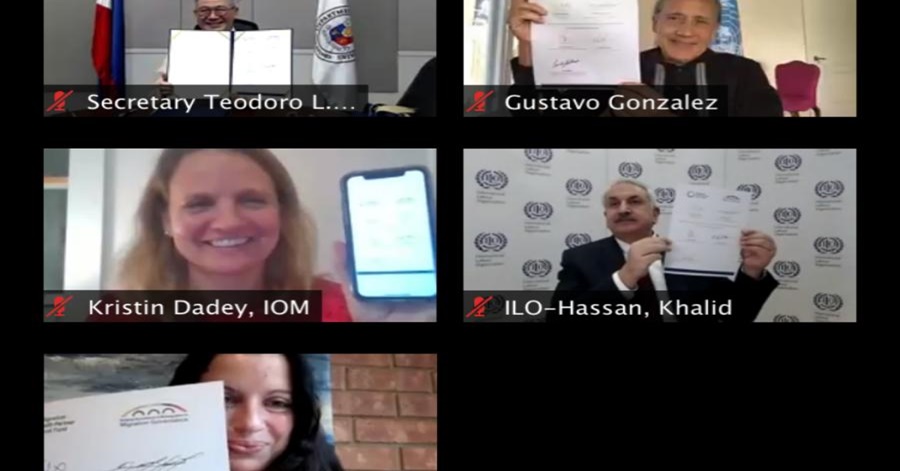The Department of Foreign Affairs (DFA) in partnership with the United Nations (UN) launched a program on Wednesday, December 16, which aims to protect the rights and welfare of Filipino migrants throughout the migration cycle.
In the Philippines, Overseas Filipino Workers (OFWs), who number 2.3 million as of 2018, are faced with numerous challenges that start from their recruitment and deployment until their return and reintegration into the Philippines labor sector.

DFA, UN Roll Out New ‘BRIDGE’ Program to Ensure Better Protection of Migrant Workers
The program called Bridging Recruitment to Reintegration Migration Governance (BRIDGE), aside from ensuring ‘ethical recruitment’ of migrant Filipino workers also aims to respond to the impact of COVID-19 on overseas Filipino workers, a report from the United Nations Philippines website said.
Representing the Philippines in this agreement, Foreign Affairs Secretary Teodora Locsin, Jr. reassured the public that the government will do its best to reach out to “the most vulnerable to abuse out there”.
“Be assured of our utmost cooperation as we look forward to the success of the BRIDGE program and the implementation of the Global Compact for Migration,” Locsin said.
In line with this, Kristin Dadey of International Organization for Migration, the implementer of the program, said: “With COVID, we’ve seen hundreds of thousands of overseas Filipino workers returning, many of them distressed and not actually wanting to return but found themselves out of employment and jobs. So, we’ll be looking to ensure that reintegration frameworks take into account particular circumstances, they’re gender-sensitive, and really suit the needs of the migrant workers themselves.”
What is Ethical Recruitment?
The Recruitment Times defines ethical recruitment as “the process which allows recruitment agencies to become trusted partners and to form long and meaningful relationships.”
In this sense, ethical recruitment will play an important role in the marketplace, where clients have the choice as to what agencies they will use.
Forced Labor or Involuntary Work: A Long-standing Global Challenge for OFWs, Migrant Workers
Data according to the Philippines National Migration Survey and the Global Estimates of Modern Slavery reveals that forced labor or involuntary work remains to be one of the major challenges for migrant workers in the Philippines and on a global scale.
Based on this, many OFWs have encountered difficulty to reintegrate, or to find work in the country, for several reasons, including the mismatch between the skills they acquired abroad and available jobs in the country when they return.
In addition, women migrants are particularly vulnerable to risks of exploitation, violence, and trafficking with only a small percentage of them seeking help for physical or sexual violence.
READ NEXT: OFW Reintegration Program: Requirements, Benefits, and Associated Programs